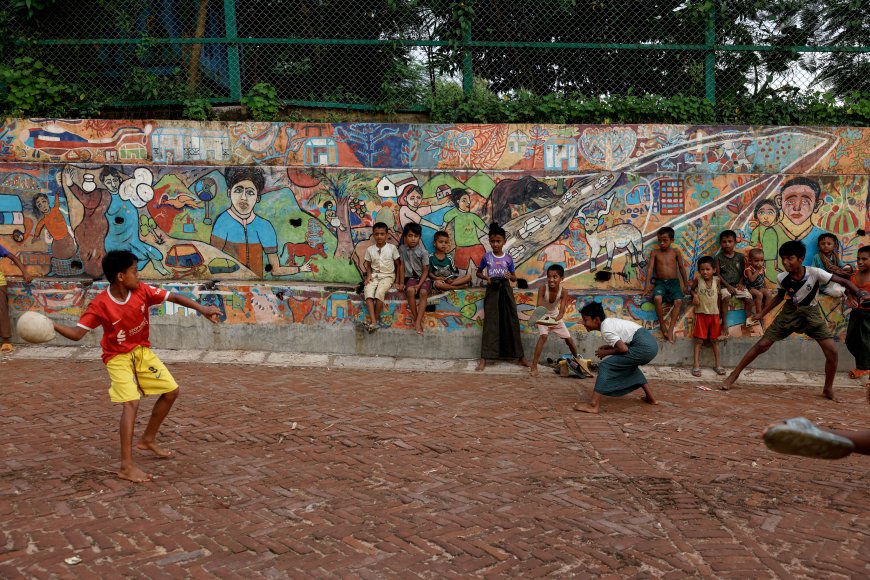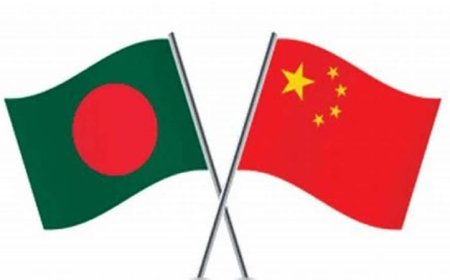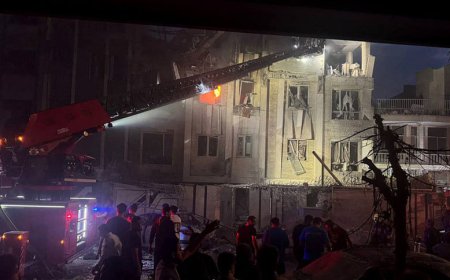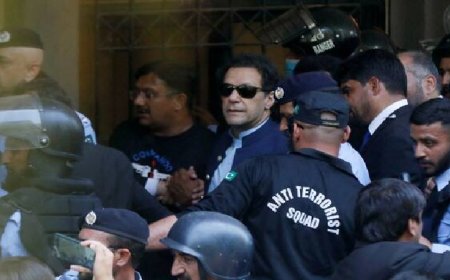In the world's largest refugee camps, Rohingya Rally to Fight Back in Myanmar
Dhaka is growing increasingly frustrated with the Arakan Army's tactic of targeting Rohingya settlements, according to two sources, as the violence hampers efforts to repatriate refugees to Rakhine.

In July, Rafiq, a 32-year-old Rohingya man, secretly left the world’s largest refugee camp in southern Bangladesh and crossed into Myanmar on a small boat, heading towards the civil war in the country he had fled in 2017. Thousands of Rohingya insurgents like Rafiq have emerged from the camps in Cox’s Bazar, where militant recruitment and violence have surged this year, according to several sources and internal aid reports.
Rafiq, who spent weeks fighting in Myanmar before returning after being shot in the leg, stated, “We need to fight to take back our lands. There is no other way.” The Rohingya, a largely Muslim group, fled Myanmar in large numbers starting in 2016, escaping what the UN described as genocide by the Buddhist-majority military. The ongoing rebellion in Myanmar, which gained momentum after the military coup in 2021, now includes a range of armed groups, with Rohingya fighters joining the fight. Many have aligned with forces previously responsible for their persecution, aiming to battle the Arakan Army, an ethnic militia controlling much of Rakhine state, the area from which the Rohingya fled.
Reports from 18 people, including Rohingya fighters and aid workers, indicate that between 3,000 and 5,000 Rohingya have joined insurgent groups in the camps. Some have cooperated with Myanmar's military, which has offered weapons, training, and cash in exchange for support. In some cases, they have been promised citizenship documents, a tempting offer for those denied citizenship in Myanmar and confined to refugee camps in Bangladesh.
The two largest Rohingya militant groups, the Rohingya Solidarity Organisation (RSO) and the Arakan Rohingya Salvation Army (ARSA), do not have widespread support in the camps, but the rise of armed fighters and weapons around Cox’s Bazar is seen as a potential threat to regional stability. Many refugees, particularly the younger generation born into poverty in the camps, are vulnerable to being drawn into militant activity or criminal enterprises.
In the ongoing fight for Maungdaw, a town in Myanmar near the refugee camps, Rohingya fighters are struggling against the better-equipped and more experienced Arakan Army. Despite their challenges, they have managed to slow the Arakan Army’s advance. Efforts by Bangladesh to broker peace talks between the Rohingya and the Arakan Army earlier this year were unsuccessful.
The Arakan Army has denied targeting Rohingya settlements, asserting that it provides aid to civilians without religious discrimination. Meanwhile, violence in the camps has escalated, with insurgent groups fighting for influence. Shootings and killings have become common, disrupting humanitarian aid and creating a climate of fear.
Human rights groups have reported at least 60 deaths this year in the camps, along with numerous abductions, torture, and intimidation. The Norwegian Refugee Council has warned that with funding for the camps set to run out in the next decade, there is a risk of a "massive vacuum" where young people are drawn into armed groups to earn an income.
For refugees like Sharit Ullah, who escaped Maungdaw with his family in May, the situation is dire. Struggling to get food and safety, he said, "We have nothing here. We live in fear."
What's Your Reaction?





















































































